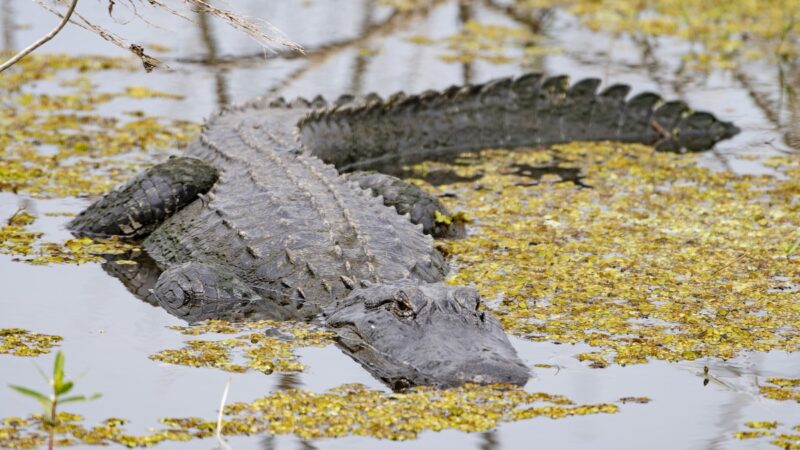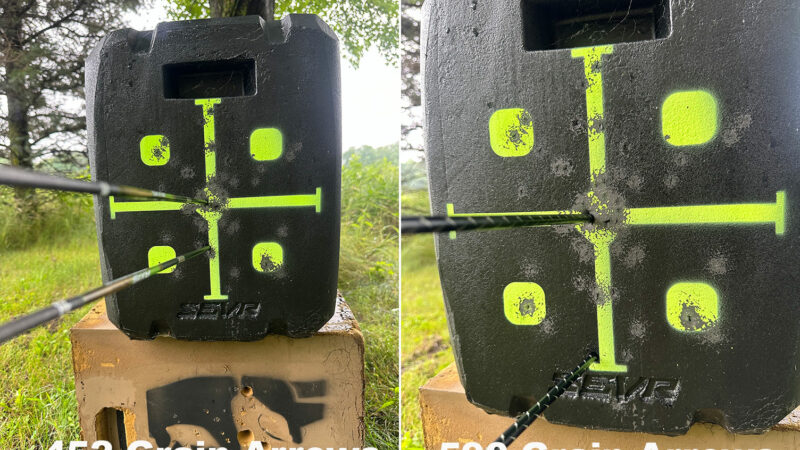Should All Game Wardens Wear Body Cams? Washington State Thinks So
Starting in September, wildlife officers in Washington State will be required to wear body cameras while on duty. The Washington Department of Fish and Wildlife announced the new program Monday and said the agency’s adoption of body cams is meant to enhance accountability, increase transparency, and improve public safety.
“It’s really to help provide an unbiased witness to events,” WDFW’s chief of law enforcement Steve Bear tells Outdoor Life. “Game wardens often work alone in areas where there aren’t witnesses, and it just provides clarity to situations.”
While the program might be new for WDFW, it’s far from the first of its kind. Several state fish-and-game agencies already require or allow their wildlife officers to wear body cameras. This is part of a larger trend among law enforcement agencies in the country. A 2022 report from the National Institute for Justice found that roughly half (47 percent) of all police departments and most large police departments (80 percent) in the U.S. are now required to use these devices.
Bear says the WDFW’s new body cam program is part of a larger legislative mandate that affects all law enforcement officers in the state — not just game wardens — and requires them to record their interactions with the public in many instances. But he says that even before the new law passed, WDFW game wardens had been asking for body cameras.
“I think a lot of it has to do with this general sense that a lot of people don’t trust law enforcement. And they want people to see what it is they actually do.”
Under the new program that starts Sept. 1, Bear says that all 152 of the state’s game wardens will be required to record each and every interaction they have with a member of the public, such as during a game check. They can do this by simply hitting a button on the camera. Bear says the cameras will also start recording automatically when an officer pulls their taser or sidearm.
“We’ve got the cameras here in the office and they’re doing training over the next couple of days,” Bear says. “We should be ready to deploy them next week.”
Game wardens need body cameras just as much as, if not more than, a typical police officer, says Bear. In addition to spending more time in remote areas with few witnesses, game wardens regularly interact with people carrying firearms and can often find themselves in dangerous situations. He says obtaining video footage will also strengthen the evidence they can use to support investigations and protect Washingtonians’ shared natural resources.
“We’re here to serve the public. We want to be open about what we’re doing,” Bear says. “And I feel like this is just another way to do that.”
There are some hunters and anglers who are already used to seeing this philosophy in action. Officers with the Pennsylvania Game Commission and the Pennsylvania Fish and Boat Commission have been using body cams in some form for roughly a decade. A 2014 law gave full-time Pennsylvania game wardens and waterways conservation officers the authority to use body cameras, and a new bill proposed in June seeks to expand that authorization to deputies as well. Importantly, these laws do not impose mandates but rather allow the agencies to use body cameras at their discretion.
“It’s a neutral, objective witness to the occurrences [that happen]. What statements were made, what actions were taken,” PGC assistant counsel Jason Raup said in a recent interview, explaining that the benefits of body cameras go both ways. He said the use of cameras has allowed PGC to “eliminate and reduce” the number of false complaints coming from the public.
Over the last 10 years, at least nine state fish-and-game agencies have implemented their own body camera programs. This timeframe also aligns with the aforementioned adoption of body cameras by law enforcement agencies across the U.S. Although some agencies were already experimenting with the technology, the New York Police Department became one of the first large departments to adopt body cameras in 2013, according to the Associated Press. This was triggered, in part, by a federal judge’s decision that the NYPD’s stop-and-frisk policy was unconstitutional. Many more police departments would soon follow suit in 2014 after the killing of Michael Brown in Ferguson, Missouri, initiated a wave of public protests.
Georgia game wardens, for example, have been wearing body cameras since 2020. Oklahoma and Arkansas followed suit in 2022, which is the same year the U.S. Department of the Interior started requiring U.S. Fish and Wildlife Service officers to wear body cameras. The Tennessee Wildlife Resources Agency began outfitting game wardens with body cams earlier this year, and unlike in Washington, the TWRA’s program was spearheaded entirely by the agency and not through a legislative mandate.
Read Next: Texas Game Wardens Seize $100K Worth of Stolen Boats and Motors at Amateur Bass Tournament
This is by no means an exhaustive list, either. Bear says the neighboring agencies to the south and north — the Oregon State Police and the Alaska Wildlife Troopers, respectively — are already using body cameras. And there will likely be other state fish-and-game agencies implementing their own programs as body cameras become more commonplace in local police departments.
The post Should All Game Wardens Wear Body Cams? Washington State Thinks So appeared first on Outdoor Life.
Source: https://www.outdoorlife.com/conservation/game-wardens-body-cams/




